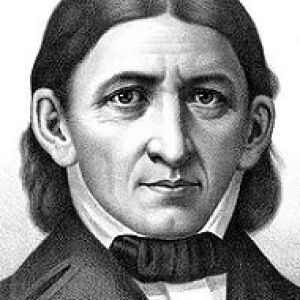Early Childhood
'Children are like tiny flowers; they are varied and need care, but each is beautiful alone and glorious when seen in the community of peers.'
Friedrich Froebel 1782-1852
Froebel's educational theories where shaped by several key events that happened in his early childhood, the first of which was the death of his mother. His father, at that time, was a strict religious paster, and his relationship with Froebel was distant and loveless. His view was that life was serious and that play was not what children should do. At that time the value of play was not understood. Initially Froebel's new stepmother was kind towards him, but her affection quickly dwindled once she had her own children. At this time Froebel was very much left on his own, often in the garden, looking at the plants and flowers, the insects and the birds. Early on the natural world became significant to him.
By the age of 12 there was another change in Froebel's life. He moved away from his home to live with his uncle, who was also a paster, but with a very different religious approach to that of his father. From here Froebel realised that there can be different ways of doing things. He developed a questioning attitude, thinking things through for himself and discovering his own understanding.
These early childhood experiences play an important role in understanding Froebel's theories and practices.
- 1
- 0
- Apple iPhone
- f/2.8

Comments
Sign in or get an account to comment.


